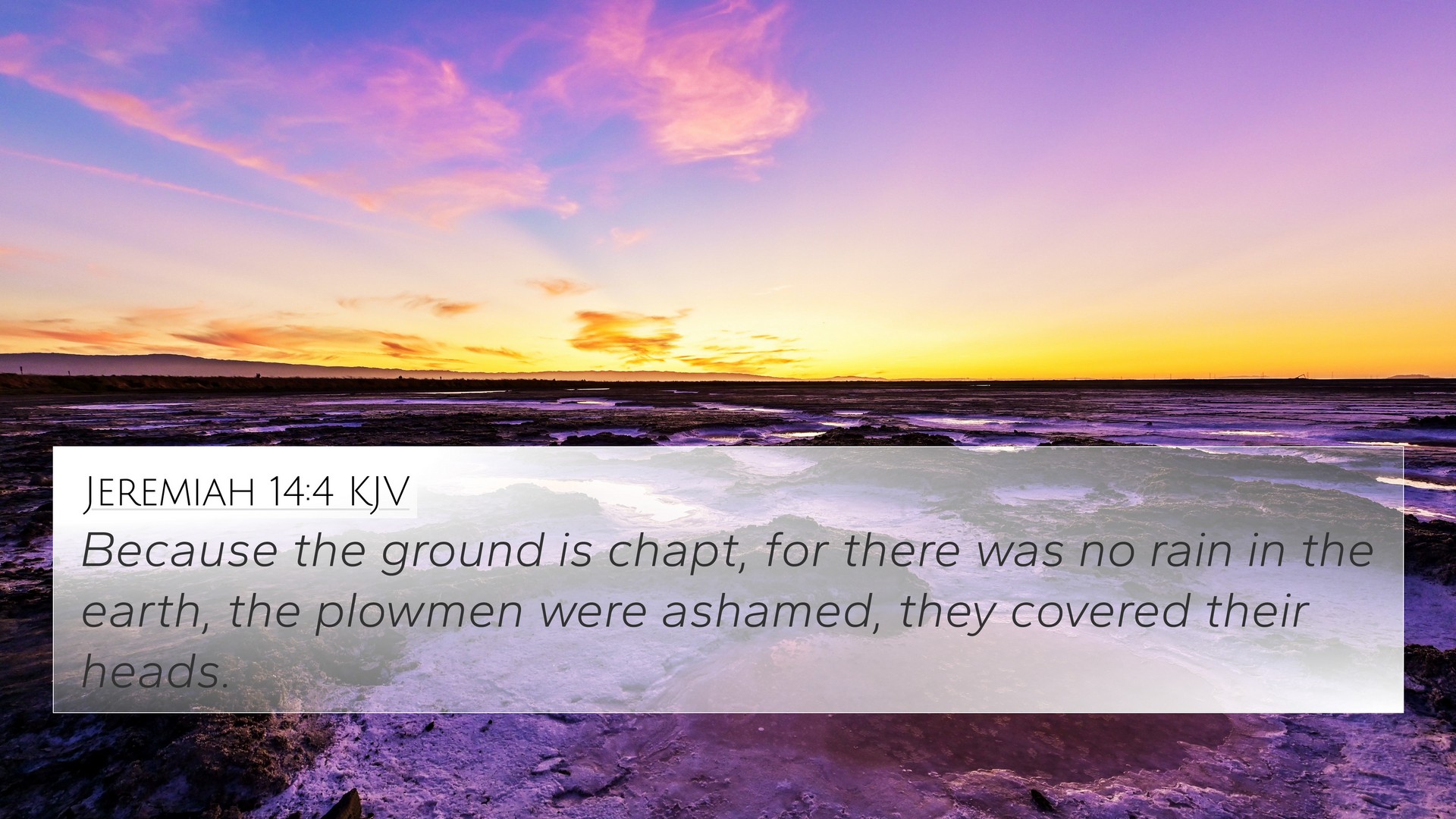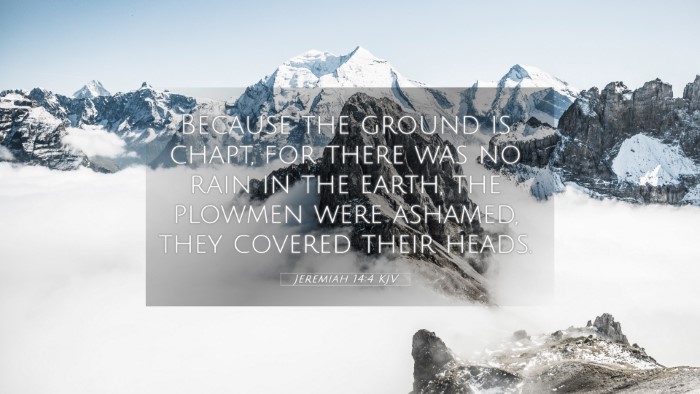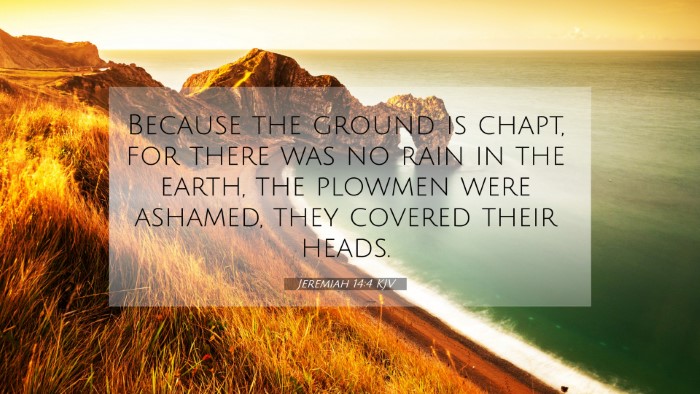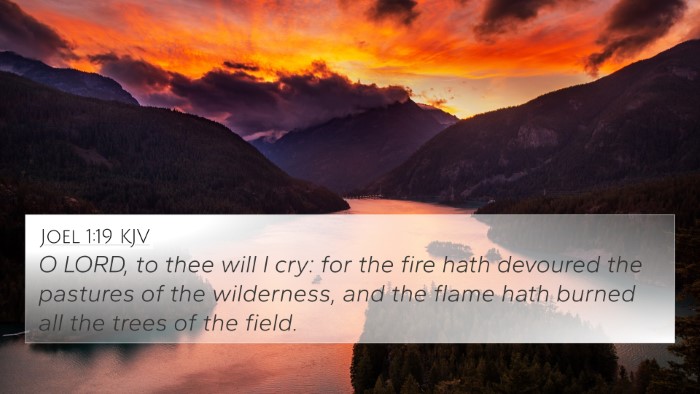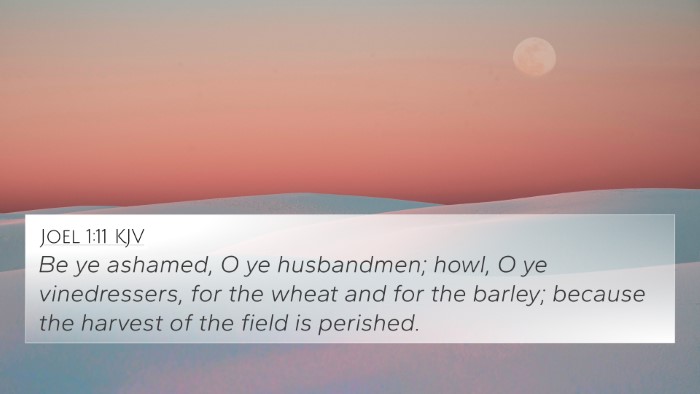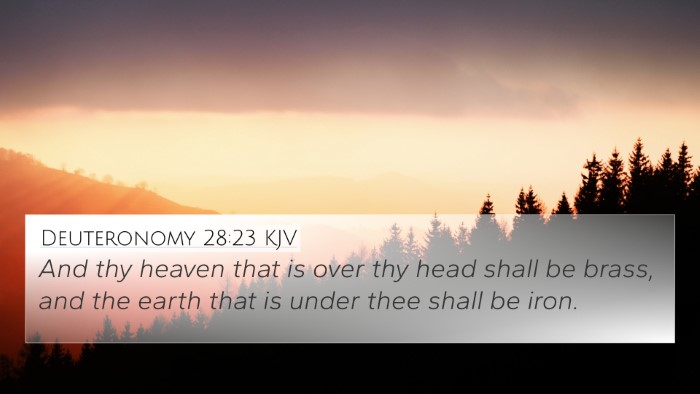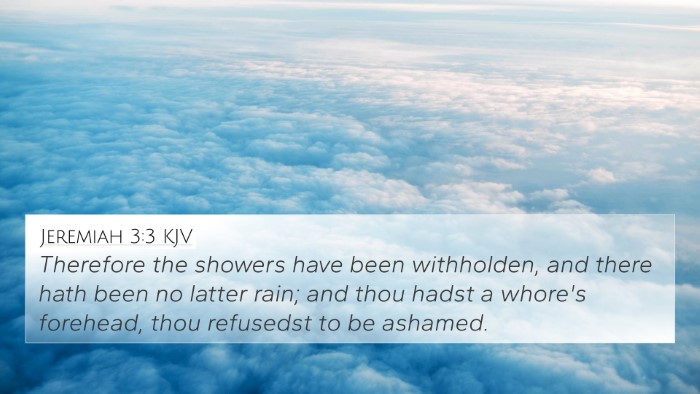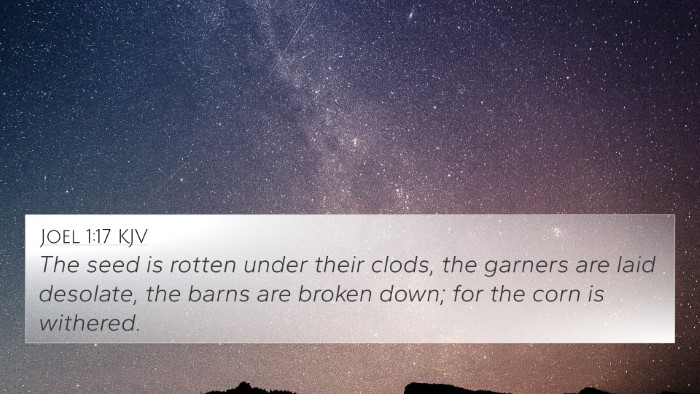Understanding Jeremiah 14:4
Verse: "Judah mourns, and her gates languish; they are black unto the ground; and the cry of Jerusalem is gone up." - Jeremiah 14:4 (KJV)
Contextual Overview
Jeremiah 14:4 highlights the somber condition of Judah and Jerusalem during a time of drought and national distress. The imagery illustrates the deep sorrow that permeates the community as they confront the dire consequences of their actions and God’s judgment.
Commentary Insights
-
Matthew Henry:
Henry emphasizes the mourning of Judah as symbolic of their spiritual state. The "gates" represent the city’s entrance, signifying both physical and metaphorical openness to devastation due to unfaithfulness. The "cry" of Jerusalem reflects a yearning for divine mercy amid their suffering.
-
Albert Barnes:
Barnes notes the lamentation as indicative of the broader social and political turmoil faced by the people. The desolation depicted not only points to a physical drought but serves as a parallel to the spiritual drought that has afflicted the nation due to their turning away from God.
-
Adam Clarke:
Clarke focuses on the causative factors behind the mourning. He connects the verse with previous prophetic warnings about the consequences of idolatry and sin, illustrating that the afflictions faced by Judah are a direct result of their disobedience.
Bible Verse Cross-References
This verse can be connected to several other scriptures that reflect similar themes of mourning, desolation, and divine judgment:
- Jeremiah 8:21: "For the hurt of the daughter of my people am I hurt; I am black; astonishment hath taken hold on me."
- Lamentations 1:4: "The ways of Zion do mourn, because none come to the solemn feasts; all her gates are desolate..."
- Ezekiel 4:17: "That they may want bread and water, and be astonished one with another, and consume away for their iniquity."
- Amos 8:11: "Behold, the days come, saith the Lord God, that I will send a famine in the land, not a famine of bread, nor a thirst for water, but of hearing the words of the Lord."
- Isaiah 1:7: "Your country is desolate, your cities are burned with fire: your land, strangers devour it in your presence, and it is desolate, as overthrown by strangers."
- Joel 1:18: "How do the beasts groan! The herds of cattle are perplexed, because they have no pasture; yea, the flocks of sheep are made desolate."
- Matthew 23:37: "O Jerusalem, Jerusalem, thou that killest the prophets, and stonest them which are sent unto thee..."
Thematic Connections
This verse illustrates a profound theme of communal suffering due to collective sin and disobedience to God. The mourning represents not just physical hunger or drought, but a deeper spiritual famine that affects personal and communal relationships with the Divine.
Bible Study Approaches
To further understand the connections between this verse and others, consider the following tools for Bible cross-referencing:
- Bible concordance for locating verses by keywords.
- Bible cross-reference guides to see thematic connections.
- Cross-reference study methods to explore correlations.
- Bible reference resources, including commentaries and study guides.
- Detailed cross-reference frameworks for verse comparisons.
Applying Insights
When analyzing Jeremiah 14:4 along with its cross-references, one can identify a recurrent pattern of divine warning followed by lamentation. This pattern invites readers to contemplate the spiritual state of humanity and the necessity for repentance and restoration.
Conclusion
Jeremiah 14:4 serves as a poignant reminder of the consequences of turning away from God's ways. Through the mourning of Judah, we see a call to recognize our own spiritual conditions and the need for collective repentance. By engaging in comparative Bible verse analysis and utilizing tools for cross-referencing, one can uncover rich insights into the interconnectedness of scripture, enhancing understanding of biblical themes and messages.
